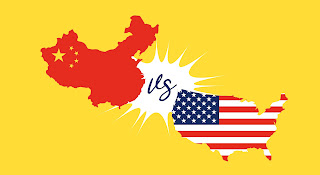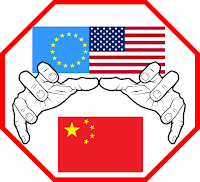China Is a Geopolitical Dwarf

Vector Vectors by Vecteezy China has the numbers on its side. The second largest economy in the world, it is poised to surpass the US economy in 2030. An industrial giant, it accounts for almost one-third of the world's manufacturing output, leading the US by over 10 percentage points. A global trade powerhouse, China is the largest partner of two-thirds of countries (128 out of 190), overtaking the long-standing US. Yet, despite its phenomenal transformation from a peasant-based to an industrial society in merely 44 years, China has remained a geopolitical dwarf, unable to project its military power beyond its territory in East Asia, let alone in the Pacific or Southeast Asia. Its geopolitical situation looks dire especially in East Asia, where the US has put in place the containment policy with its Asian allies. China's major geopolitical weakness is its inability to reclaim the island of Taiwan, a renegade province that lies 100 miles from the mainland. The island, now un...






